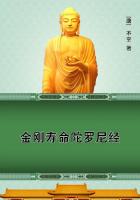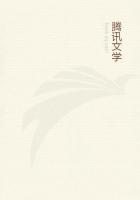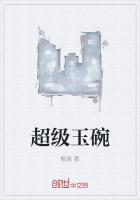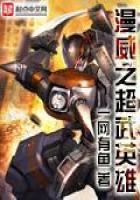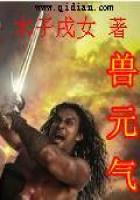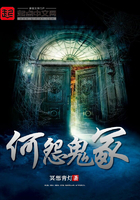But there are many other circumstances which evince that what I have alleged is the true cause of the motion of the blood:thus,in the first place,the difference that is observed between the blood which flows from the veins,and that from the arteries,can only arise from this,that being rarefied,and,as it were,distilled by passing through the heart,it is thinner,and more vivid,and warmer immediately after leaving the heart,in other words,when in the arteries,than it was a short time before passing into either,in other words,when it was in the veins;and if attention be given,it will be found that this difference is very marked only in the neighborhood of the heart;and is not so evident in parts more remote from it.
In the next place,the consistency of the coats of which the arterial vein and the great artery are composed,sufficiently shows that the blood is impelled against them with more force than against the veins.And why should the left cavity of the heart and the great artery be wider and larger than the right cavity and the arterial vein,were it not that the blood of the venous artery,having only been in the lungs after it has passed through the heart,is thinner,and rarefies more readily,and in a higher degree,than the blood which proceeds immediately from the hollow vein?And what can physicians conjecture from feeling the pulse unless they know that according as the blood changes its nature it can be rarefied by the warmth of the heart,in a higher or lower degree,and more or less quickly than before?
And if it be inquired how this heat is communicated to the other members,must it not be admitted that this is effected by means of the blood,which,passing through the heart,is there heated anew,and thence diffused over all the body?Whence it happens,that if the blood be withdrawn from any part,the heat is likewise withdrawn by the same means;and although the heart were as-hot as glowing iron,it would not be capable of warming the feet and hands as at present,unless it continually sent thither new blood.We likewise perceive from this,that the true use of respiration is to bring sufficient fresh air into the lungs,to cause the blood which flows into them from the right ventricle of the heart,where it has been rarefied and,as it were,changed into vapors,to become thick,and to convert it anew into blood,before it flows into the left cavity,without which process it would be unfit for the nourishment of the fire that is there.This receives confirmation from the circumstance,that it is observed of animals destitute of lungs that they have also but one cavity in the heart,and that in children who cannot use them while in the womb,there is a hole through which the blood flows from the hollow vein into the left cavity of the heart,and a tube through which it passes from the arterial vein into the grand artery without passing through the lung.
In the next place,how could digestion be carried on in the stomach unless the heart communicated heat to it through the arteries,and along with this certain of the more fluid parts of the blood,which assist in the dissolution of the food that has been taken in?Is not also the operation which converts the juice of food into blood easily comprehended,when it is considered that it is distilled by passing and repassing through the heart perhaps more than one or two hundred times in a day?
And what more need be adduced to explain nutrition,and the production of the different humors of the body,beyond saying,that the force with which the blood,in being rarefied,passes from the heart towards the extremities of the arteries,causes certain of its parts to remain in the members at which they arrive,and there occupy the place of some others expelled by them;and that according to the situation,shape,or smallness of the pores with which they meet,some rather than others flow into certain parts,in the same way that some sieves are observed to act,which,by being variously perforated,serve to separate different species of grain?
And,in the last place,what above all is here worthy of observation,is the generation of the animal spirits,which are like a very subtle wind,or rather a very pure and vivid flame which,continually ascending in great abundance from the heart to the brain,thence penetrates through the nerves into the muscles,and gives motion to all the members;so that to account for other parts of the blood which,as most agitated and penetrating,are the fittest to compose these spirits,proceeding towards the brain,it is not necessary to suppose any other cause,than simply,that the arteries which carry them thither proceed from the heart in the most direct lines,and that,according to the rules of mechanics which are the same with those of nature,when many objects tend at once to the same point where there is not sufficient room for all (as is the case with the parts of the blood which flow forth from the left cavity of the heart and tend towards the brain),the weaker and less agitated parts must necessarily be driven aside from that point by the stronger which alone in this way reach it I had expounded all these matters with sufficient minuteness in the treatise which I formerly thought of publishing.And after these,I had shown what must be the fabric of the nerves and muscles of the human body to give the animal spirits contained in it the power to move the members,as when we see heads shortly after they have been struck off still move and bite the earth,although no longer animated;what changes must take place in the brain to produce waking,sleep,and dreams;how light,sounds,odors,tastes,heat,and all the other qualities of external objects impress it with different ideas by means of the senses;how hunger,thirst,and the other internal affections can likewise impress upon it divers ideas;what must be understood by the common sense (sensus communis)in which these ideas are received,by the memory which retains them,by the fantasy which can change them in various ways,and out of them compose new ideas,and which,by the same means,distributing the animal spirits through the muscles,can cause the members of such a body to move in as many different ways,and in a manner as suited,whether to the objects that are presented to its senses or to its internal affections,as can take place in our own case apart from the guidance of the will.Nor will this appear at all strange to those who are acquainted with the variety of movements performed by the different automata,or moving machines fabricated by human industry,and that with help of but few pieces compared with the great multitude of bones,muscles,nerves,arteries,veins,and other parts that are found in the body of each animal.Such persons will look upon this body as a machine made by the hands of God,which is incomparably better arranged,and adequate to movements more admirable than is any machine of human invention.And here I specially stayed to show that,were there such machines exactly resembling organs and outward form an ape or any other irrational animal,we could have no means of knowing that they were in any respect of a different nature from these animals;but if there were machines bearing the image of our bodies,and capable of imitating our actions as far as it is morally possible,there would still remain two most certain tests whereby to know that they were not therefore really men.
Of these the first is that they could never use words or other signs arranged in such a manner as is competent to us in order to declare our thoughts to others:for we may easily conceive a machine to be so constructed that it emits vocables,and even that it emits some correspondent to the action upon it of external objects which cause a change in its organs;for example,if touched in a particular place it may demand what we wish to say to it;if in another it may cry out that it is hurt,and such like;but not that it should arrange them variously so as appositely to reply to what is said in its presence,as men of the lowest grade of intellect can do.The second test is,that although such machines might execute many things with equal or perhaps greater perfection than any of us,they would,without doubt,fail in certain others from which it could be discovered that they did not act from knowledge,but solely from the disposition of their organs:for while reason is an universal instrument that is alike available on every occasion,these organs,on the contrary,need a particular arrangement for each particular action;whence it must be morally impossible that there should exist in any machine a diversity of organs sufficient to enable it to act in all the occurrences of life,in the way in which our reason enables us to act.Again,by means of these two tests we may likewise know the difference between men and brutes.For it is highly deserving of remark,that there are no men so dull and stupid,not even idiots,as to be incapable of joining together different words,and thereby constructing a declaration by which to make their thoughts understood;and that on the other hand,there is no other animal,however perfect or happily circumstanced,which can do the like.Nor does this inability arise from want of organs:for we observe that magpies and parrots can utter words like ourselves,and are yet unable to speak as we do,that is,so as to show that they understand what they say;in place of which men born deaf and dumb,and thus not less,but rather more than the brutes,destitute of the organs which others use in speaking,are in the habit of spontaneously inventing certain signs by which they discover their thoughts to those who,being usually in their company,have leisure to learn their language.

